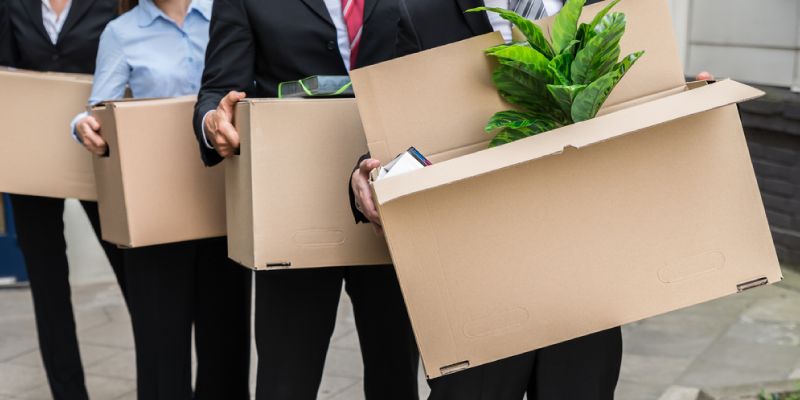Prema Gopalan, Swayam Shikshan Prayog : building networks of rural social businesses
Thursday February 10, 2011 , 6 min Read

Prema Gopalan completed her Masters in Social Work and her pre-doctoral study on women in the informal sector left her restless and she wanted to engage directly with such women. Since then, getting involved in three major natural disasters in India[1] Prema has turned large scale crises into mass scale opportunities for development women in these communities. For the last two decades, Prema has scaled efforts to bring the poor from the margin to the mainstream partnering with the Government and then with large corporations to empower women at the bottom of the pyramid.For her work, Prema has received recognition as an Ashoka Fellow and a Finalist Khemka Foundation Social Entrepreneurship Award of the Year in 2008. Globally, Prema is on the Steering Committee of GROOTS International and the Huairou Commission
– networks of autonomous grassroots women’s organisations across forty countries.
Founded by Prema Gopalan in 1990, Swayam Shikshan Prayog is building networks of rural “social businesses” that are co-created by women entrepreneurs’ collectives from marginal families and institutions.[2]
SSP stimulates and enables sustainable development processes for rural women through a package of incubation and business development services[3]. It brings together on common platform - village entrepreneurs, their networks and local institutions to work with its social enterprises that are governed by the bottom line of a triple profit:
a) Financial - All actors in the value chain (especially the women entrepreneurs) make equitable profit.
b) Environmental - All enterprises are rooted in the principles of clean and green development - renewable energy, safe water, organic agriculture etc.
c) Social - All businesses fortify the development index of village communities and ensure inclusion of debutant entrepreneurs in the networks of financial and social capital.
Working in the disaster hit under developed regions of Maharashtra and other states, SSP has unleashed 1,820 women retail entrepreneurs with a total consumer base of 100,000 families through partnerships with business giants[4] it has ensured widespread social impact in health, energy, agriculture which has brought about more than 33% income growth per entrepreneur. SSP has additionally launched over 50,000 women through micro-credit in agriculture and non-farm businesses since 1998.
The Innovation
SSP spots gaps in rural BOP markets, identifies potential partner companies and then aligns local women with global corporations to co-create businesses that deliver “social products” to poor consumers at affordable price points.
To scale and sustain these disruptive businesses, SSP has developed ‘business-ready village eco-systems’ where different economic entities - companies, rural entrepreneurs, producers, consumers, women’s savings and credit groups – are brought together into an integrated value chain. The strengths of each actor in the network are leveraged to launch new markets at the bottom of the pyramid (BOP) and grow niche segments into mature markets.
SSP- Promoted Social Businesses
SSP has launched and promoted flagship rural businesses in the segments of
- Clean home energy appliances and bio-fuel
- Safe drinking water
- Organic agriculture
- Community Health Insurance
- Social Micro-Finance
- Rural entrepreneurship
- Vocational kills
Taken together, the enterprises launched by SSP have leveraged the power of communities as both consumers and producers. This convergence has also led to the design of products and services that tap into the existing wealth of communities –i.e. their social capital.
How is it trying to create an impact in the society?
Access to health insurance has led to total annual savings of 4 million INR for 9000 families. Sakhi Retail has improved health of women and girls by reducing indoor air pollution in 2,00,000 rural homes, leading to savings of INR 15 million in household monthly incomes. Sakhi Retail owes its existence to brainstorming sessions that Prema had with the management guru C.K. Prahalad and Jeb Brugmann co-founders of The Next Practice. The idea was to craft a business model that allowed village women to participate in, and benefit from, every aspect of commercial activities they would engage in. Average income growth per entrepreneur stands at 33%.
The SSP group plans to expand its effective last mile delivery to 1 million people. By espousing the vision for an holistic green and clean economy and involving grassroots women entrepreneurs and creating new rural markets where none exist. The School of entrepreneurship will unleash a spiraling effect as thousands of grassroots social economic entrepreneurs women/youth seek to improve livelihoods, incomes and transform the environmental fabric and resilience of their communities.
Who it is targeting?
The venture is targeting thousands of grassroots social economic entrepreneurs women/youth seek to improve livelihoods, incomes and transform the environmental fabric and resilience of their communities.
What it will mean for your venture to get shortlisted as the finalist to the unreasonable institute?
As a thought leader in social entrepreneurship, Prema plans to scale up current operations and innovate new businesses, besides facilitating cross sector collaborations between social and business sectors.
What excites you about your journey as an entrepreneur?
Creating and supporting growth of Change Makers who can make a difference. If you empower women at the grassroots, as entrepreneurs, they can lift up their families and contribute to the success of their communities. Multiply these change makers’ impact by a hundred or a thousand, and perhaps over one million lives can change.
What have been your biggest challenges as an entrepreneur in making this venture a success and how have you overcome it?
There are more serious challenges that the existing business model faces. Enterprises that seek to reach the bottom of the pyramid and involve poor women in all aspects have a high social value, but typically suffer from working capital constraints as they are considered risky. Because the end product largely serves the need of customers in rural areas, the problem of developing a cost-effective supply chain in the face of inadequate rural infrastructure and transport is quite high. These challenges are compounded by the fact that margins are wafer-thin, thus leaving very less room for the required building blocks -capacity building, information systems and customer databases.
Most notably, the challenge of designing a profitable business while simultaneously creating positive social impact continues. A bigger challenge we face is how to make partnerships work between the social and the business sector to serve the growing needs of rural, low income markets.
http://www.sspindia.org
http://www.disasterwatch.net
http://marketplace.unreasonableinstitute.org/admin/entrepreneurs/put/47
[1] Earthquakes in Latur-Osmanabad in Maharashtra and in Kutch and in tsunami affected Tamil Nadu areas
[2] Mentioned in a subsequent section
[3] These services include access to capital, market insights, and linkages to government, incubation of legal entities and skill building of micro-entrepreneurs.
[4] BP, Godrej, HUL and SIDBI Oriental Insurance










![[Funding alert] CpaaS startup CometChat raises $1.6M from US and Indian VCs](https://images.yourstory.com/cs/2/b87effd06a6611e9ad333f8a4777438f/Imageoxty-1597817824151.jpg)